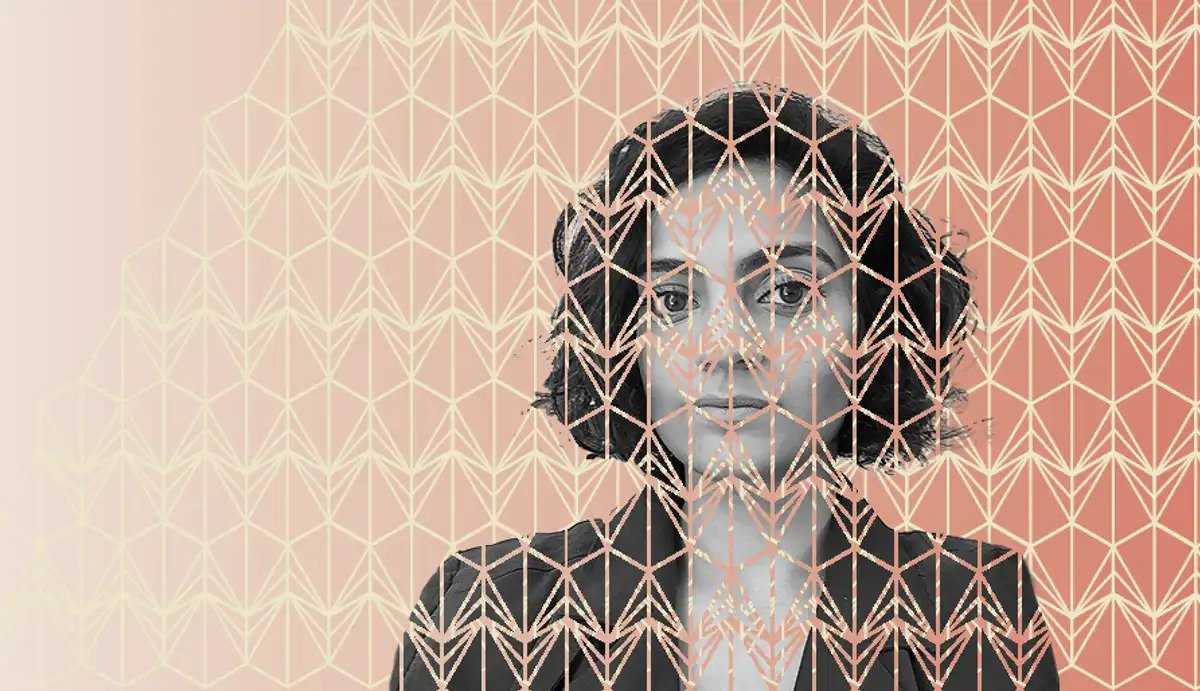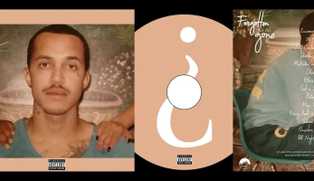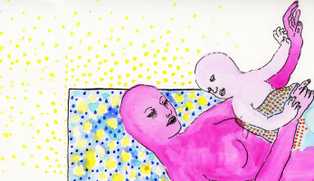Writer and filmmaker Nida Manzoor is currently developing her short 7.2 with Big Talk, into an action comedy series. Nida has won writing competitions with the Guardian, BBC Writersroom, National Youth Theatre & Shine Drama and was selected for Channel 4’s Screenwriting Course 2014. She is currently writing for CBBC’s Dixie and Jamillah and Aladdin. She made the list for Broadcast Magazine’s Hot Shots 2015. This year’s list celebrates the best rising BAME talent in the British Television Industry. Skin Deep: What were some of the films you enjoyed watching when you were younger?
Nida Manzoor: The first thing I remember really getting into was TV, not film. I lived in Singapore until I was ten years old and I was really obsessed with these Singaporean sitcoms. They were brilliantly trashy, with this crazy frenetic energy, with a Fawlty Towers-type vibe, sometimes absurd and farcical. I thought they were hilarious. So I was loving comedy pretty early on. And then it was the standard Asian family thing of lots of Bollywood films. I don’t know if I enjoyed it all the time, but there were key moments when I loved it, like when I first saw Lagaan and Kuch Kuch Hota Hai, stuff like that, you know, the classics that my mum would drag me to see, but I secretly loved.
I properly got into film when we moved to London. As a teenager, my sister and I used to go to Blockbuster to rent out teen movies, exclusively teen movies – we wanted to see characters our age on screen. That’s when I really started to love film and thought that it belonged to me in some way. So it was stuff like Donnie Darko, The Dangerous Lives of the Altar Boys and Igby Goes Down, that kind of American indie teen stuff, comic and dark – I thought those films were really cool.
Also, I discovered Hanif Kureishi’s writing in my early teens. His novel Buddha of Suburbia was so important for me. It was the first time I’d read something written by a brown person that totally ticked all my boxes. It was witty, sexy, subversive – in this great conversational style that I loved. I was so inspired, I started to try and write like him.
SD: Are these still types of films you choose to watch?
NM: I try and watch as much of everything, but there are certain things that excite me. Like films with complicated, messy female characters, films that mix genres, films with great dialogue. I love chatty films; I know those aren’t always considered the most ‘filmic’ of films, but they are my faves. I love watching people interact. I also really enjoy watching filmmakers’ first films. Rian Johnson’s film Brick and Tamara Jenkin’s film Slums of Beverly Hills are on rotation for me. It’s inspiring to watch these because I’m hopefully gearing up to make my first.
SD: So you can relate to what they are doing.
NM: Yeah, and there’s a kind of rawness and anarchy which is really exciting to see in first films. There are a lot of films coming out nowadays where you don’t feel the filmmaker’s personality behind them. All the edges have been shaved off, you don’t know how many writers have been rewriting it. Whereas when you watch a filmmaker’s first film it has got so much of themselves and their issues in it. It’s messy and delicious.
SD: Do you think you are more inclined to watch films by British or American filmmakers?
NM: I’ve never really broken it down like that. I tend to gravitate towards films of a certain genre and tone rather than thinking about where the film came from. And there is so much exciting stuff coming from all over the world, outside of Britain and the States. But when it comes to my taste in comedy, I would say British. Bruce Robinson’s Withnail and I is indisputably the funniest film ever made.
SD: It’s one thing to enjoy watching films, but what inspired you to pursue filmmaking as a career?
NM: Watching great films inspired me. You know that feeling you get when you watch a great film that tells an amazing story with style and flair, and then after you’ve seen it you’re floating around like weirdo. I want to make films that could do that: make people float around like weirdos.
SD: Do you call yourself a ‘filmmaker’?
NM: I call myself an auteur. I’m joking! Cringe! I never know what to say when people ask ‘what do you do?’ I feel like a total fraud. I usually have a meltdown and run away. Or I say I write for TV, mumble something about hoping to direct feature films.
SD: Being part of our current multimedia generation changes the definition of film and filmmakers in many ways. Anyone with a smartphone can record and publish their work now. What are your particular points of reference in multimedia filmmaking?
One of the first books I read on filmmaking was Robert Rodriguez’s Rebel without a Crew and it was totally inspiring to hear about how he just went out there and did his thing with basically no industry support and the Dogme 95 filmmakers who were making these uber stripped back films in the 90s – it’s so badass. I think that this DIY mentality is at the heart of our generation’s filmmaking. It’s liberating. Now, like you say, we can shoot films on anything – anyone can be a filmmaker. My films (Arcade and Layla) were both shot on a Canon 5D – an awesome stills camera that shoots HD. I got my crew by posting ads online and emailing people whose worked I admired.
When it comes to online viewing, there are some older generation film peeps who say all this online viewing is kind of killing cinema. I just don’t feel like that because it’s pretty much always been part of my reality. What’s that great line from that Lorde song? ‘maybe the internet raised us’ – it kind of did. I can’t pretend to hate it.
I was at a talk recently about film distribution and exhibition, and how difficult and expensive it is – especially for new filmmakers making their first feature – to get your film on at a cinema. I’d rather find a real audience online than have my film shown to a handful of people in a cinema.
SD: What kind of stories do you enjoy telling?
NM: I particularly enjoy telling stories that challenge and play with ideas of masculinity and femininity. Gender is so complicated and growing up I found the ‘rules’ of femininity really difficult – how you’re expected act, speak, think, feel. My work tends to push back against that in some way.
I like telling entertaining stories that have strong elements of comedy – it’s just my vibe. I can’t do gritty social realism. I’m also loving making action films. After watching these great action films that were all about men when I was a kid, I really wanted to see more women, ’cause women can be equally rude, funny and violent.
SD: Do you have plans to make a feature-length film with these strong female characters?
NM: Yes! I have a script that I am developing with a producer at the moment, which is similar to my shorts in terms of style, tone, character. The shorts were their own stories in their own right, but they were something that I used to build up my experience, to learn, and also figure out what I want to say.
Film is hard though. It’s a long slog, especially for a first timer. TV is where I am getting more work so I am splitting my time between the two things.
SD: Can you tell me about 7.2, the short film you just released?
NM: It’s a short action comedy about what it means to be a teenage girl today. So this girl wakes up with no memory of who she is, and she has to fight various foes on this epic journey of self-discovery. It has these violent action sequences between schoolgirls, so it’s quite a heightened world. Every teenager is Jason Bourne – you don’t know who you are, everyone is trying to mess with you. The action and teen genres go together awesomely.
SD: I’m sure there will be aspiring filmmakers reading this. What are the three preceding steps that you took to get to where you are now?
NM: Three steps! More like a hundred tiny steps.
Ok, the major ones were firstly deciding I wanted to do this. Be a filmmaker. It sounds like a dumb step, but it took me a while to convince myself and then convince my parents that this was something I really wanted and needed to do. It’s scary. Being a writer, director, filmmaker was just never presented as a career option. Even at uni, although I was studying politics, I was making all these films and still I was thinking ‘this is just a fun hobby that kind of consumes my life, but whatever’.
Then I graduated and I was like ‘no, I’m doing this’. I drew out an epic spider diagram for myself about why I needed to do this. I was worried about telling my parents, because they were there thinking I was going to be a human rights lawyer – all this education for what?! I know I’m busting out Asian family clichés, but I was bricking it when I decided to tell them. It was difficult, but they came around to it. You can’t argue with a solid spider diagram.
Second step. I got a job in the industry as a runner in a post house in Soho. Boom, I was ‘in the industry’. That was important for my brain, even though I was making tea and emptying bins, I was in. Kind of. Technically. People could ask me where I worked, and I’d be like ‘I work in the film industry, bitches.’
Third and most important step was I was making stuff all the time. Writing scripts, directing stuff, helping out on other people’s sets on the weekend. I was entering competitions and festivals where I could and showing my work to people who were interested. You’ve got to be a bit jammy in a nice, non-annoying way. That led to me getting my agents.
SD: Where do you see yourself in five years time? You have unlimited money and a free ticket anywhere.
NM: Making original work is the dream. So it would be great to be writing and directing original work for TV and film. That would be sweet. I would love to make my first feature in the next five years. It’s bursting out of me like a freaking alien.
I also have this dream of making an epic feminist Kung Fu film set in a dystopian future. That might take more than five years. But I’m cooking it in my brain.
SD: What have you got coming up next?
NM: I’m developing a TV series based on my short film (7.2) with some amazing, inspiring people at Big Talk, and I’m adapting this hilarious book to TV with awesome people at ITV studios. As I mentioned, I’m developing my feature with a producer too. It’s an action comedy about love and marriage set within a British Pakistani family.
SD: For you I guess that storyline is familiar, but for most of the people that will be watching, it won’t be.
NM: It’s one of those stories where you could change it to a white family, and the story still works. That is something that was once brought up. I think it’s a pretty relatable story. The brown thing is neither here nor there.
A few times I’ve had a meeting where I’ve been asked about writing the ‘hardships of being a Muslim’ – forced marriages, honour killings. First of all, that’s not my experience of growing up in a Muslim family and I don’t want to normalize such portrayals of Muslim people. These stories are part of our reality but it’s not cool for these to be the only stories being told. So I like seeing diverse characters who aren’t always having to ‘suffer’, playing the stereotype.
When I started writing, the first few things I wrote didn’t actually have that much diversity in them. It was almost as though I was afraid to be pigeonholed and then only be seen as a filmmaker of a certain kind of thing. Whereas now I’ve gotten over that – because it’s more important to me to see diverse characters than worry about how I might be branded.
SD: What are you reading and listening to at the moment?
NM: I am currently reading Infinite Jest by David Foster Wallace. It’s a mammoth of a book. It has inspired me in terms of writing about a school, because he creates this world with really hyper-smart, complicated characters. As he goes into each chapter, he moves into these different voices – it’s brilliant writing. I am also reading Frankenstein by Mary Shelley, which I hadn’t read before. It’s so awesome because she was only nineteen when she wrote it, something that is now so engrained in popular culture. The fact that she could be so young and so influential – I just love that.
Ooh, I’m also reading some graphic novels and comics. I’m reading this Marvel comic called Ms Marvel. It’s about a Pakistani-American girl, Kamala Khan, who develops superpowers whilst being a school kid. It’s got great action, comedy and characters. G. Willow Wilson, who wrote it, did a phenomenal job. I’m also a big fan of Kelly Sue DeConnick too. She also mixes feminist themes and genre. Her series Pretty Deadly is a Western that has a magical element and is just full of women! I think the second series is coming out this month.
SD: Would you ever write your own graphic novel?
NM: I don’t know. I suppose everything I write comes out as a kind of screenplay. That is the medium that I have become really comfortable with.
SD: And music?
NM: I am listening to Off Peak Dreams, the latest Ghostpoet album. I saw him live in Liverpool when I was working there. It’s quite mellow and chills me out. Also, loving Kognitif’s new album Soul Food. French trip hop is kind of doing it for me right now. It’s so good to write to.
SD: As a creative young woman, who is making films about badass women, what do you wish you could see more of in creative spaces like Skin Deep?
NM: I like to hear about different creatives – what have they struggled with, what is difficult for them. Recently, I was at this weekender with some filmmakers, organised by BFI and Creative England, and it was the best weekend ever. They brought in all these amazing speakers, there were a bunch of new filmmakers, and we were all at a similar-ish stage of our careers. There is something about speaking to each other that was mobilising. When you create these rooms for discussion and get people in, it’s so powerful. You really feel part of something.




